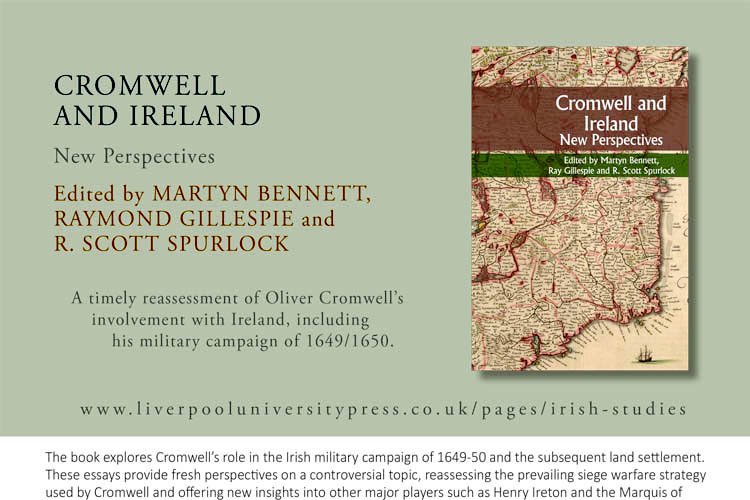In his controversial 2014 book ‘Cromwell was Framed’ Drogheda historian Tom Reilly claimed that the long-held belief that Oliver Cromwell had massacred hundreds of civilians during a siege of Drogheda in 1649 was a myth.
Seven years on the dust has just about settled in local history circles but now Tom is at it again and this time he has managed to assemble a small army of academics and no less than three editors to back him up in his theories.
“And guess what? I was right, there were no civilian massacres!!!” Tom told Drogheda Life.
Here’s the publicity blurb for the book:
In Ireland a timeworn bitterness still simmers over the punitive ‘Cromwellian’ policies, for which Oliver Cromwell is largely held personally responsible as Lord Protector during the 1650s.
It is Cromwell’s name that history has attached to the settlement of Ireland by the English parliament. He, himself has been explicitly accused of war crimes at the sieges of Drogheda and Wexford in 1649.
New research now attempts to extricate the word ‘Cromwell’ from the ‘Cromwellian’ settlement. Led by Prof Martyn Bennett, a team of period experts re-examine the military campaign with a long overdue shift of focus to other parliamentarian leaders.
Included are reassessments of the backdrop and context of both the prevailing siege warfare strategy and Cromwell’s controversial legacy throughout Ireland ever since.
Fresh insights are offered concerning some of the major players including Ormond, Ireton, Broghill and Jones. The facts are skilfully marshalled throughout, presented impartially and it is difficult not to conclude that Cromwell’s roles in both the alleged atrocities of the military campaign and the implementation of the Irish land settlement have to date been greatly overstated.
There is no evidence that women and children were deliberately massacred at either Drogheda or Wexford. Often labelled as one of history’s greatest enigmas, it is clear that Oliver Cromwell retains the ability to absorb us still.
It remains to be seen if the more passive Cromwell that emerges here will in any way assuage the vile caricature of the man that Irish history, tradition and folklore have all long-since accepted.




